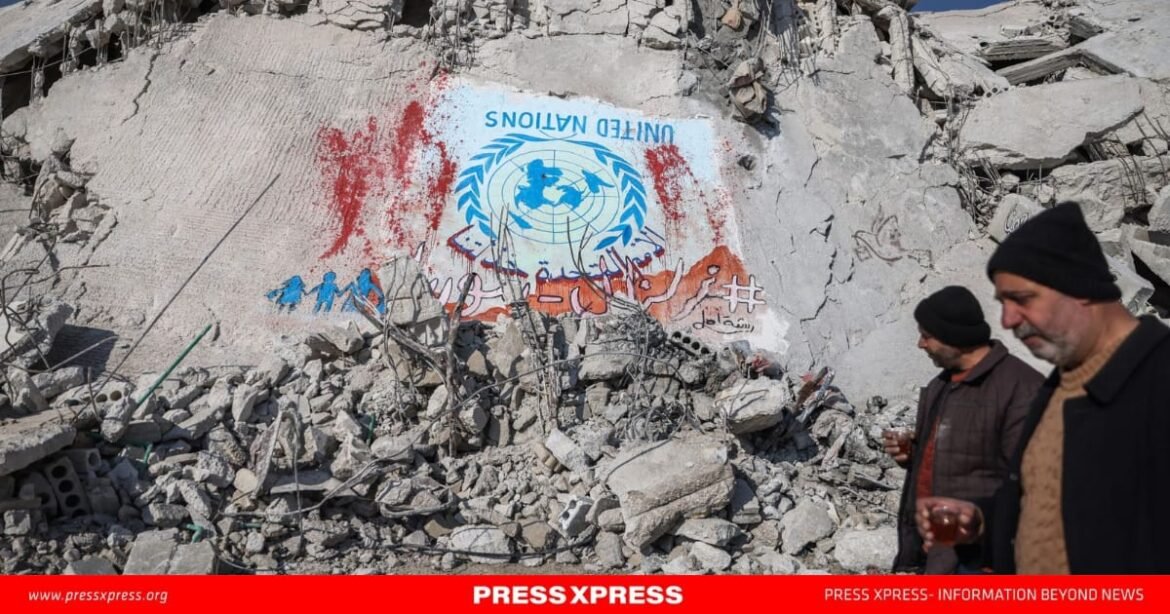The evolving dynamics in Syria, marked by the ousting of President Bashar al-Assad, have reignited discussions around an almost decade-old UN Security Council resolution, seen by many as pivotal to the nation’s uncertain future.
“The people of Syria stand at a historic crossroads—a moment of opportunity that must not be squandered,” declared UN Secretary-General António Guterres in New York last week. He emphasized the guiding principles of Security Council Resolution 2254, a sentiment echoed by senior diplomats such as U.S. Secretary of State Antony Blinken and German Foreign Minister Annalena Baerbock.
Despite years of deadlock over Syria, the Security Council recently reaffirmed its commitment to the resolution. Russia, traditionally a staunch ally of Assad, has often obstructed UNSC initiatives on Syria, including those related to aid access and chemical weapons investigations. However, in the aftermath of Assad’s departure, Moscow appears more conciliatory toward UN-led efforts.
Understanding Resolution 2254
Adopted unanimously in 2015, Resolution 2254 sought to chart a path toward peace during one of the bloodiest phases of Syria’s civil war. It called for a ceasefire, a political transition, and the drafting of a new constitution, culminating in free and fair elections. Crucially, it envisioned a Syrian-led process supported by the international community.
The resolution underscored Syria’s territorial integrity, national sovereignty, and a non-sectarian governance framework. However, the ground realities today differ significantly from when the resolution was conceived. The power-sharing mechanisms and negotiations between the Assad regime and the opposition, as envisioned in the resolution, are now outdated, given Assad’s ouster and the rise of a transitional administration led by Ahmad al-Sharaa.
Origins and Limitations of Resolution 2254
Resolution 2254 built upon the Geneva Communique of 2012, which outlined the principles for a political solution. The communique, endorsed by major global powers but excluding Syrian representation, formed the basis for subsequent UN resolutions. However, its implementation faced repeated hurdles, particularly after events like the 2013 chemical weapons attack in Ghouta, which killed over 1,300 civilians and deepened international divisions.
Today, the resolution’s relevance is questioned. Critics argue it addresses a conflict landscape that no longer exists. Al-Sharaa’s transitional administration has suggested the need for an updated framework that reflects current realities. Nonetheless, the resolution’s principles—national unity, territorial integrity, and an inclusive political process—remain cornerstones of international discourse on Syria.
The Role of External Actors
Foreign influence continues to shape Syria’s trajectory. Over the weekend, members of the Astana Process—Russia, Iran, and Turkey—reaffirmed their support for Resolution 2254 during a meeting in Aqaba, Jordan, alongside officials from Egypt, Saudi Arabia, and other regional players. While this consensus is significant, skepticism abounds. Many Syrians view external actors, including the UN, with suspicion, citing years of perceived ineffectiveness and self-serving interventions during the civil war.
Israel has also played a notable role in shaping the conflict. It has conducted numerous airstrikes targeting Iran-linked facilities, Syrian military infrastructure, and weapons production sites, justifying these actions as measures to prevent weapons from falling “into the hands of extremists.” Israel’s activities have included seizing control of the demilitarized buffer zone in the Golan Heights and operating at points beyond the buffer zone. Though its strategic objectives remain unclear, some Israeli policymakers view Syria’s current transitional state as an opportunity to establish ties with minority groups such as the Druze and Kurds. Others have proposed fragmenting Syria into autonomous cantons, allowing external actors, including Israel, to form cooperative relationships with these regions.
Syrian opposition groups have voiced concerns that Resolution 2254 could be manipulated to legitimize such foreign interventions. The long-standing presence of external powers—each with competing agendas—complicates the prospect of a genuinely Syrian-led transition.
A Roadmap for Transition
Despite its imperfections, Resolution 2254 remains the most viable framework for navigating Syria’s transition. The alternative—crafting an entirely new approach—risks further delays and political fragmentation. Experts like Richard Gowan, UN director at the International Crisis Group, argue that the resolution’s foundational principles offer a starting point for inclusive Syrian-led dialogue.
“Syria’s transition must be carried out by Syrians for Syrians, but with external assistance,” wrote Carl Bildt, Sweden’s former prime minister, in a recent op-ed. This sentiment underscores a delicate balancing act: empowering Syrians while leveraging international support to ensure stability.
As the dust settles on Assad’s regime, Resolution 2254 stands as a testament to the aspirations of a nation that has endured over a decade of war. Its implementation, however, will depend on the willingness of Syrians and the international community to align around a shared vision for peace, sovereignty, and reconstruction.


